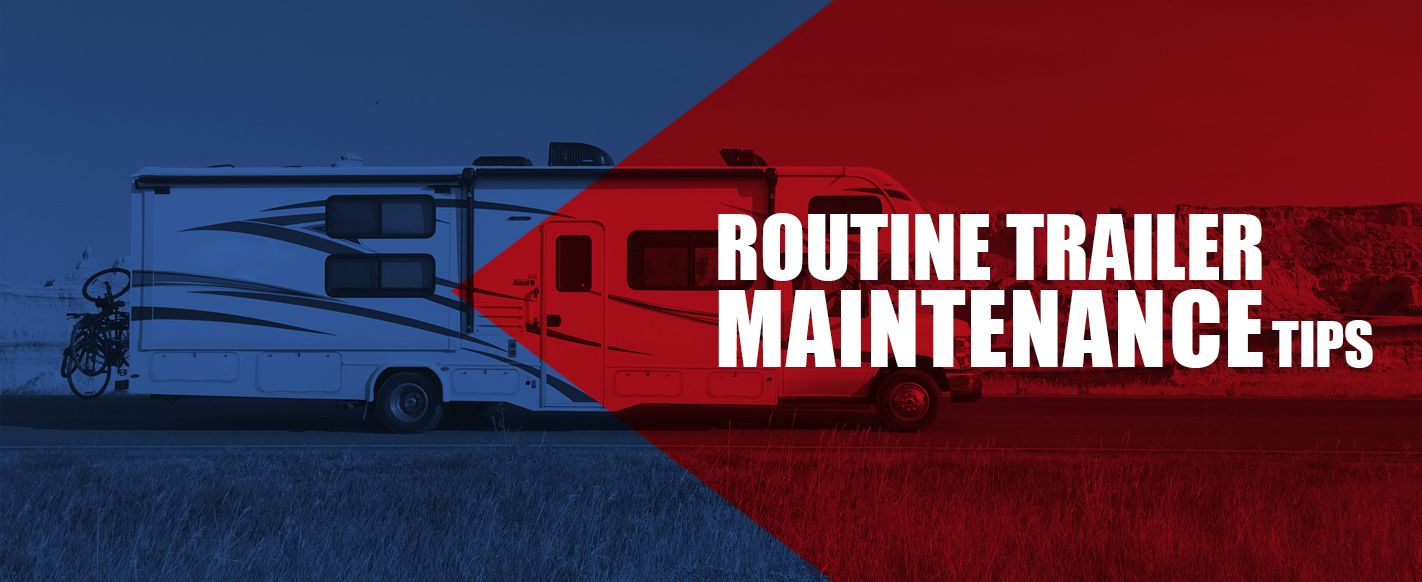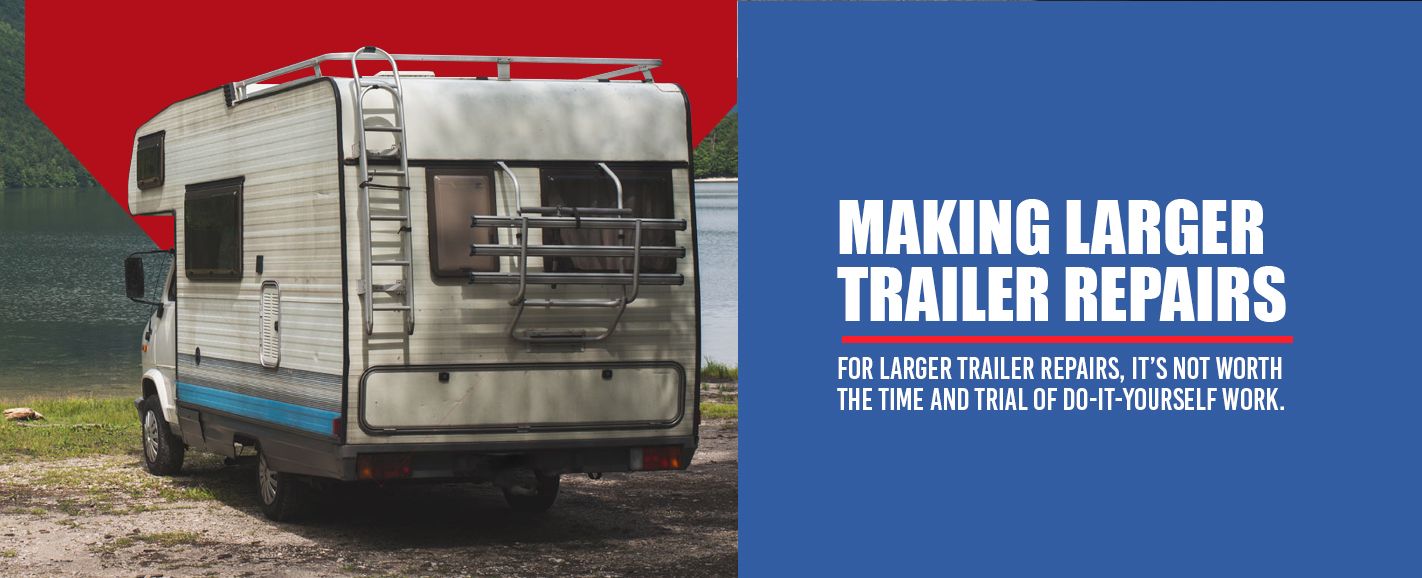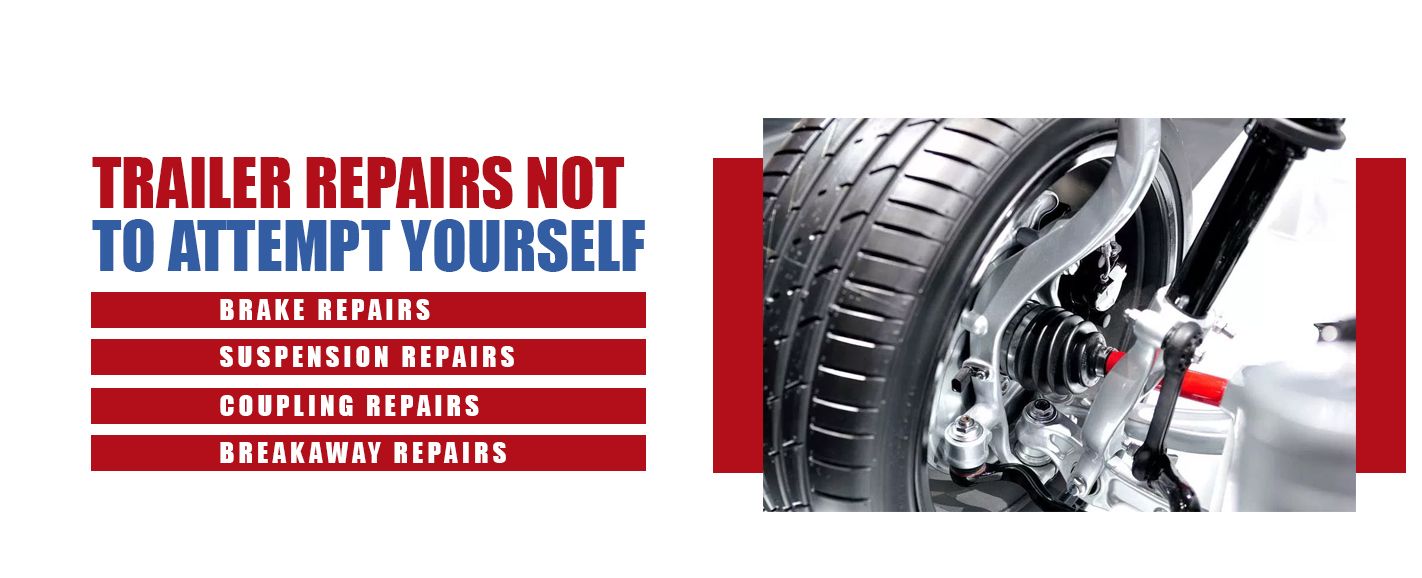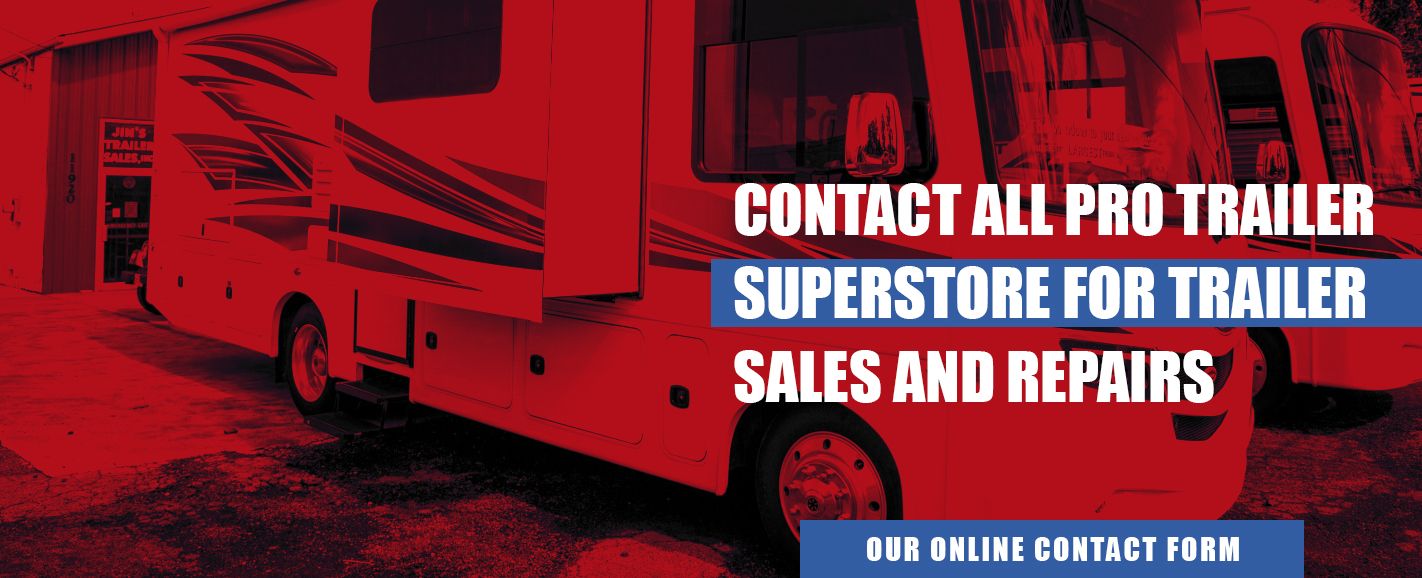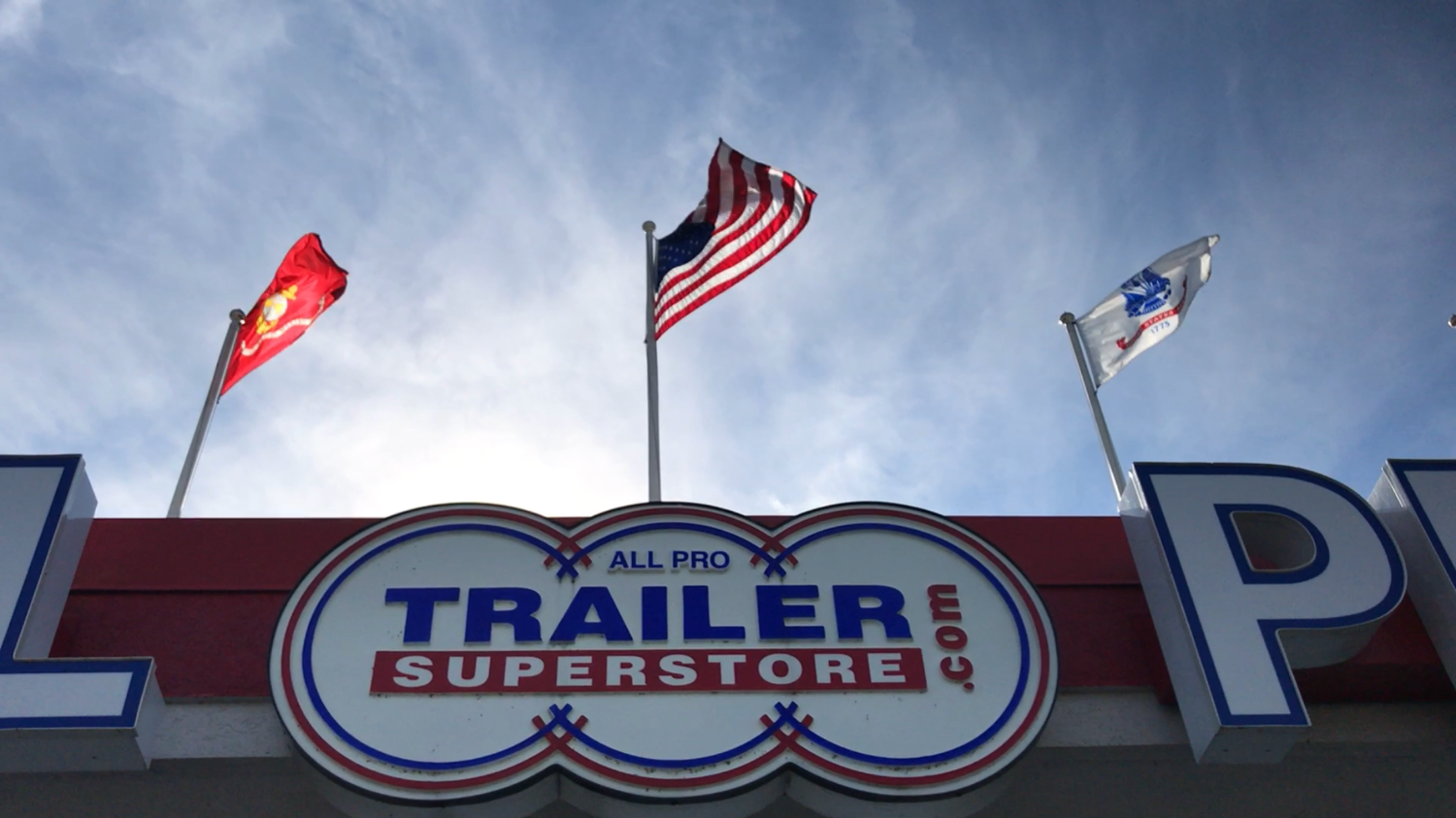Routine Trailer Maintenance Tips
Dec 18, 2018Last Updated on October 23, 2024 by Matthew Sholly
Last Updated on October 23, 2024 by allprotrailersuperstore
Buying a trailer is a smart investment. Long-term trailer ownership compared to short-term renting has enormous returns, particularly when you use your trailer regularly. When you purchase a trailer, you now have a valuable asset. The best way to protect your investment is through routine trailer maintenance. For that, you could use some helpful tips.
Just like any other type of equipment, a well-maintained trailer will perform better and last longer than a neglected one. The amount of time and money you spend maintaining your trailer investment can have a return on investment in the long run. You can delay or prevent expensive repairs, as well as keep your trailer in continuous service.
You can take on many trailer maintenance tasks yourself, including routine jobs like lubricating moving parts and checking tire pressure. Washing and cleaning your trailer is an ongoing process, and replacing light bulbs is something you can easily do. However, for bigger and more complex undertakings such as brake repairs and spot welds, you need professional help.
It’s also essential to keep in mind that the larger the trailer, the more parts will need maintenance and the more complex the mechanics may become. You might wonder what maintenance tasks you should do yourself and when you should turn to a trailer maintenance specialist. To help you decide, here are some valuable trailer maintenance tips. You’ll also get a clear picture of why trailer maintenance is so important.
Table of Contents
- Making Small Trailer Repairs and Maintenance Tasks
- Making Larger Trailer Repairs
- Trailer Repairs Not to Attempt Yourself
- Contact All Pro Trailer Superstore for Trailer Sales and Repairs
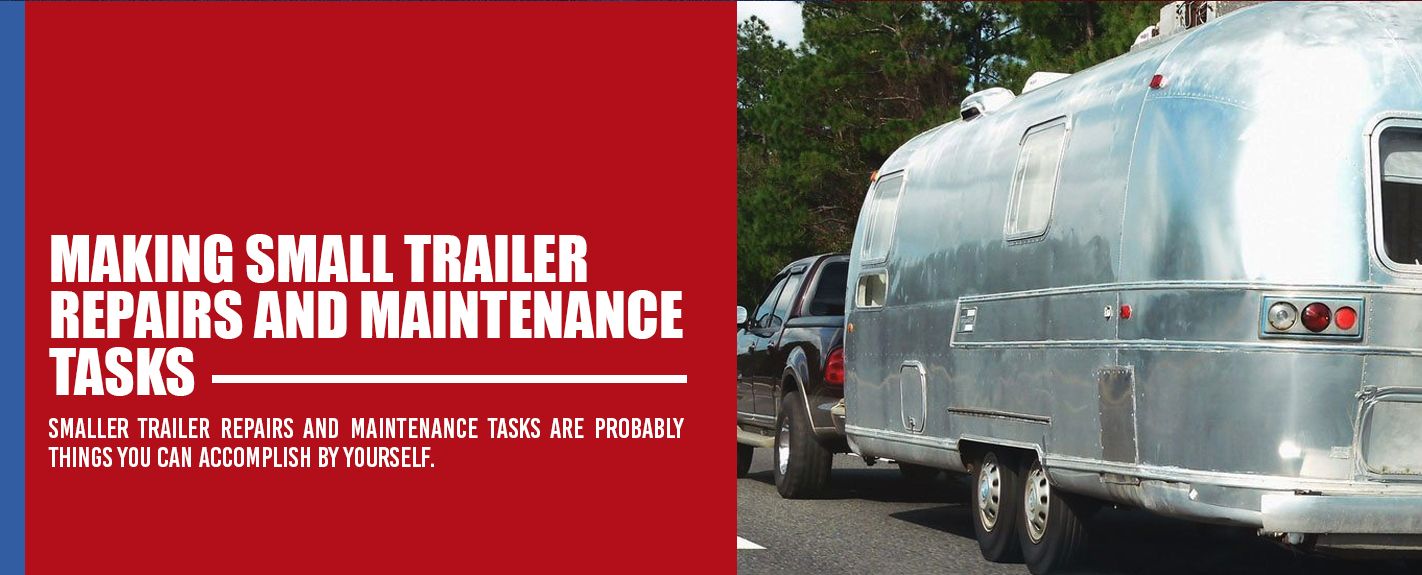
Making Small Trailer Repairs and Maintenance Tasks
Smaller trailer repairs and maintenance tasks are probably things you can accomplish by yourself. You don’t need technical or expensive tools to make small trailer repairs. Most minor repairs and maintenance requires more work with your hands than with tools. The same applies to skill. However, for repairs requiring high skill like replacing brakes or repairing wiring, you’re wise to leave that to licensed mechanics. Here is a step-by-step trailer maintenance checklist of small repairs and maintenance tasks you can take on yourself.
Washing and cleaning: If there’s one simple maintenance task that really pays off, it’s washing and cleaning your trailer regularly. By regular, that means every time it needs attention. That might be seasonal when nature deposits material on your body or chassis. It’s also after you’ve towed your trailer through muddy or dusty terrain.
A simple solution of household detergent and water is usually all you need for most cleaning tasks. As well, you need a hose, bucket and decent brush. A word of caution, though: Be careful with stiff-bristled brushes if you have an enclosed trailer with an automotive finish on the body. And be very cautious if you’re using a pressure washer. You could do more damage than good with a high-pressure spray.
Lubrication: Another simple, but essential, trailer maintenance chore is lubricating moving parts. Every moving part on your trailer creates friction. Properly lubricating those components reduce friction, which, in turn, cuts down on wear and tear leading to part failure.
There are two crucial steps in lubricating your trailer: One is properly applying lubricant, and the other is the type of lube to use. Sealed components like your wheel bearings require grease applied under pressure from a grease gun. You should only use an automotive-rated axle and bearing lubricant like LMX Red Grease, which is specially designed for wheel bearings.
Light-duty lubrication tasks like door and gate hinges require a lighter, oily lubricant. Your best product is a spray application of graphite or white lithium. It doesn’t attract and trap road grime as regular grease does. When you spray your hinge points, take time to move the joint back and forth so the lubricant works inside.
Bearing Buddies: If there’s one simple maintenance task that reduces the risk of costly repairs, it’s using Bearing Buddies. They make axle lubrication easy and effective. Bearing Buddies are a proprietary brand name of an ingenious device you install on the outer flange of your trailer axles to replace the factory cap.
Bearing Buddies have a spring-loaded inner mechanism that places your grease supply under slight pressure. They deliver a constant stream of lubricant to your axle bearings and races. These aftermarket pieces have grease nipples that attach to a regular gun. They take away the old time-consuming, axle-lubing process of disassembling your hubs and repacking your bearings with fresh grease.
Because Bearing Buddies keep your axle’s inner workings under pressure, that prevents ingress of foreign dirt and moisture. Bearing Buddies are invaluable for water conditions like what boat trailers experience. That’s especially so around salt water.
Light bulbs: Replacing light bulbs is another simple repair and maintenance job you can easily accomplish. To start with, you should periodically check all the lights on your trailer. It’s particularly important that your taillights, brake lights and turn signals all work. Not only can burned-out lights be dangerous, but you could get pulled over or even fined for having faulty lights.
It’s helpful to have an assistant when inspecting trailer lights. Have your helper sit in your towing vehicle and operate the brakes and signals while you watch for defects. If a light’s not working, it’s usually because the bulb or lamp is dead, as opposed to a wiring issue.
There are two primary trailer bulb types: bayonet and push-in. Also note that there are three styles of trailer light bulbs —incandescent, halogen and light-emitting diode. Take care when handling new bulbs. The oil on your fingertips leads to early burnout.
Trailer wiring: If your lights aren’t operating and there’s nothing wrong with your bulbs, you’ll have something wrong with your wiring. Usually, this is just a dirty connection a simple cleaning can fix. You might also have a loose connection you can rectify by crimping or tightening. If those two main problem-solvers don’t work, you might have a severed wire.
You can test your wiring harness yourself with a probe-style test light. You can buy these circuit testers at any automotive supply store. Test lights look like an awl with a wire attached that clamps to a ground source like your trailer frame. Once you’ve grounded the tester, poke the sharp probe end onto the wire connection or through the plastic insulation. As long as you have the wiring harness energized, you’ll see the test device light up.
If it doesn’t, there’s an interruption to your power. Your next step is working upstream toward your battery supply, using a trial-and-error process, until you find the break. Don’t worry about electrical shock, as your trailer’s electrical system is 12 volts. If you can’t locate your power failure source, it’s best to take your trailer in for professional service.
Tires: The most crucial trailer maintenance task you can do is keeping your tires serviceable. You do that by ensuring your tire pressure is within the manufacturer’s specifications. You’ll see the recommended pressure printed on your tire’s sidewall. It’ll be rated in pounds per square inch, or PSI. You can also find your tire pressure rating in your trailer’s owner manual or on the tire manufacturer’s website.
Checking tire pressure is simple. There are three common tire pressure gauges on the market — stick, dial and digital. You can get any of them inexpensively at an auto parts store. To get an accurate reading, make sure you check pressures when your tires are “cold.” A good rule is three hours after you’ve parked your trailer. Recently run tires become “hot,” and your inflated air will expand to result in misleadingly high readings.
Tire wear is another thing to keep an eye on. Worn tires can be a disaster if a blowout happens at high speed. It’s far better to be safe than sorry and replace your trailer tires when their normal life expectancy is over. Watch for two wear signs. One is outer wear, which indicates under-inflation. The other is center wear, which is a clear sign of overinflated tires.
Be careful about rotating or swapping your trailer tires from one side to the other. Most modern tires are designed to rotate in specific directions. If you take your correctly mounted right-side tires and change them to the left, you’ll have installed them backward. Rotating or swapping tire sides is still an acceptable way to extend tire life. However, if you do change them around, you’ll need to reverse them on the rims. For that, you should always involve a professional trailer service and repair facility.
Frame and body: You’ll likely be able to make straightforward repairs to your trailer’s frame and body. Often, that will be a simple matter of tightening bolts or fasteners. You’ll find obvious signs of loose parts by visually examining your trailer from top to bottom and end to end. Hearing squeaking or rattling sounds while you are under tow might also forewarn you of problems.
For routine tightening, you’ll normally require a set of combination and socket wrenches. All American-made trailers use Imperial sizing, which works on fraction-of-inch measurements such as ¼”, ½”, ¾” and so forth. Be aware that foreign-made trailers tend to use the metric measurement system of millimeters. You’ll see common trailer fastener sizes of 10mm, 14mm, 14mm, etc. If you have a metric-based trailer, it’s not worth the expense of investing in expensive wrenches for home repairs. You’re best leaving that to the professional trailer service and repair folks.
You’re also wise to have professionals perform more complicated repair and service work if it involves your trailer frame’s suspension and coupling systems. These are serious components that require specific knowledge, skills and tools to get the work done right. Coupling devices like trailer tongues and hitches are vital safety components. Suspension systems are under tension and can be dangerous to inexperienced people.
Making Larger Trailer Repairs
For larger trailer repairs, it’s not worth the time and trial of do-it-yourself work. There’s a return on undertaking simple tasks like cleaning, lubricating, testing lights and pressure, as well as routine bolt tightening. However, for bigger and complicated trailer repair jobs, you’ll definitely benefit from professional help.
You shouldn’t make any repairs, alterations or customizations on your trailer that would affect its road safety or legal compliance. Professional trailer service and repair people know what modifications are allowable and how to make repairs that conform to regulations. Top trailer dealers like All Pro Trailer Superstore are government-certified to make trailer inspections and verify your trailer complies with licensing rules. That certification extends to supporting your insurance, as well.
Trailer Repairs Not to Attempt Yourself
Knowing which repairs to conduct yourself is a great way to save money and protect your investment. However, it’s equally as important to protect your investment by knowing when to get professional help. While there are some repairs you can make, there are some you definitely want professionals handling. Here’s a list of trailer repairs not to attempt by yourself.
- Brake repairs: DIY brake repairs aren’t only dangerous. They might be illegal, depending on your jurisdiction. Most trailer brakes are a combination of electric and hydraulic systems. There’s a lot to know about trailer brakes. There are also specialized tools involved. Make sure to get professional brake repairs done on your trailer.
- Suspension repairs: Most trailer suspensions use a leaf spring system. These are spring steel components and they’re under tension. You could get seriously injured by unwinding trailer suspension parts. That’s also a job for professionals who understand suspension systems and have the equipment to safely repair them.
- Coupling repairs: Your trailer tongue and hitch components keep your rig safely attached to your towing vehicle. The last thing you want is your trailer suddenly detaching when under tow. You also want to unhook your trailer when you’re not using it. Professional coupling repairs make sure your trailer stays on and comes off safely.
- Breakaway repairs: Breakaway switches are vital for trailer safety. Many jurisdictions legally require certain trailer sizes to have breakaway systems that automatically activate if your trailer suddenly detaches from your tow vehicle when underway. These are serious safety devices. You should never attempt to repair your breakaway components. Instead, contact trained and competent professionals like those at All Pro Trailer Superstore.
Contact All Pro Trailer Superstore for Trailer Sales and Repairs
All Pro Trailer Superstore is your one-stop shop for all types of trailer repairs, servicing and maintenance work. Our professional trailer technicians have the experience and equipment to handle all types of trailer repairs. We are also capable of complete trailer customization.
Since 1985, All Pro Trailer Superstore has served America with superior trailer sales and repairs. We handle all types of new trailers and used trailers, as well as supplying trailer accessories and providing service work. At All Pro Trailer Superstore, we also have an impressive and attractive line of new trailer clearance models.
We’re centrally located near Harrisburg, Pa., where our 14,000-square-foot facility situated on a 10-acre property houses the largest trailer inventory selection you can find. To find out more about how All Pro Trailer Superstore can help you with professional trailer repairs, or find you that perfect new or used trailer, call us today at 800-622-7003. You can also reach us through our online contact form.


